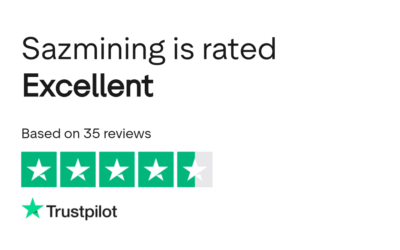Crowdfunding investments have become increasingly popular in recent years as a way for entrepreneurs to raise capital and for investors to support new and innovative projects. Crowdfunding investments offer a unique opportunity for investors to get in on the ground floor of a startup or small business and potentially earn significant returns on their investment.
However, crowdfunding investments also come with risks, and it’s important for investors to understand the ins and outs of this type of investment before diving in. Today, we’ll explore the benefits and risks of crowdfunding investments, how to evaluate crowdfunding investment opportunities, and best practices for managing a crowdfunding investment portfolio.
Índice
What are Crowdfunding Investments?
Crowdfunding investments involve funding a project or business by raising small amounts of money from a large number of people, typically through an online platform. Crowdfunding investments can take the form of donations, rewards-based crowdfunding, or equity crowdfunding. In equity crowdfunding, investors receive ownership shares in the company in exchange for their investment. This type of investment is regulated by the Securities and Exchange Commission (SEC) and is subject to certain rules and regulations.
Benefits of Crowdfunding Investments
Crowdfunding investments offer a range of benefits for investors, including the potential for high returns, the ability to diversify a portfolio, and the opportunity to support businesses and projects that align with personal values and interests.One of the key advantages of crowdfunding is the potential for high returns.
In equity crowdfunding, investors receive ownership shares in the company in exchange for their investment, which means that they have the potential to earn significant returns if the company performs well. In addition, some crowdfunding platforms offer rewards-based crowdfunding, where investors can receive perks or benefits in exchange for their investment. For example, investors may receive early access to a product, their name in the credits of a film, or a personalized thank-you note.Another benefit of crowdfunding is the ability to diversify a portfolio.
Crowdfunding platforms offer a wide range of investment opportunities, from startups and small businesses to real estate and social impact projects. This means that investors can spread their investments across a variety of sectors and industries, which can help to reduce risk and increase the potential for long-term returns.Crowdfunding investments also offer the opportunity to support businesses and projects that align with personal values and interests.
For example, an investor who is passionate about renewable energy may choose to invest in a company that is developing a new solar power technology. Or, an investor who loves music may choose to invest in a crowdfunding campaign for a new album by their favorite artist. This allows investors to feel more connected to their investments and to make a positive impact on causes that are important to them.
In addition to these benefits, crowdfunding offers tax benefits for investors. Through the Enterprise Investment Scheme (EIS) and the Seed Enterprise Investment Scheme (SEIS), investors can claim tax relief on a percentage of their investment amount, which can help to reduce their tax bill.
However, investors must meet certain criteria, such as keeping their investment for a set amount of time, in order to qualify for these tax benefits.Another advantage of crowdfunding investments is the transparency and accessibility of the investment process. Crowdfunding platforms typically provide detailed information about the companies and projects seeking investment, including financial statements, business plans, and management team bios.
This allows investors to make informed decisions about where to invest their money. In addition, many crowdfunding platforms offer tools and resources to help investors manage their investments, such as portfolio tracking and reporting features.

Risks of Crowdfunding Investments
Crowdfunding comes with inherent risks, including the potential for loss of the entire investment. Startups and small businesses are inherently risky, and many fail within the first few years. Additionally, crowdfunding investments may not be liquid, meaning that investors may not be able to sell their shares easily or at all. Crowdfunding investments are also subject to fraud and scams, so it’s important for investors to do their due diligence before investing.
Evaluating Crowdfunding Investment Opportunities
When evaluating crowdfunding opportunities, investors should consider several factors, including the company’s business model, management team, financials, and market potential. Investors should also consider the terms of the investment, including the valuation, ownership structure, and exit strategy.
It’s important to note that investing in early-stage companies is risky, and investors should be prepared to potentially lose their entire investment.
Best Practices for Managing a Crowdfunding Investment Portfolio
Managing a crowdfunding investment portfolio requires a different approach than managing a traditional investment portfolio.
Crowdfunding investments are typically illiquid and may not provide regular dividends or interest payments. Additionally, crowdfunding investments may not be subject to the same reporting requirements as publicly traded securities. To manage a crowdfunding investment portfolio effectively, investors should:
- Diversify: Invest in a variety of crowdfunding investment opportunities to spread risk.
- Monitor: Regularly review investment performance and stay up-to-date on company news and developments.
- Plan for Exits: Have a plan for how and when to exit each investment, such as through a sale or public offering.
- Stay Informed: Stay informed about regulatory changes and industry trends that may impact crowdfunding investments.
- Seek Professional Advice: Consider seeking the advice of a financial advisor or attorney with experience in crowdfunding investments.
Conclusión
Crowdfunding offers a unique opportunity for investors to support early-stage companies and potentially earn significant returns. However, crowdfunding investments also come with risks, and it’s important for investors to understand the ins and outs of this type of investment before diving in. By evaluating crowdfunding investment opportunities carefully, diversifying a portfolio, and managing investments effectively, investors can maximize their potential for success in crowdfunding investments.









